
Over 40 students explored BAME history and culture during a #DMUglobal Freedom to Achieve trip to New York in June 2019. On day one of the trip, the group visited Ellis Island, the former immigration inspection station which is now a museum honouring the USA’s immigrant heritage. Ellis Island was the gateway for over 12 million immigrants to the USA between 1892 and 1954.
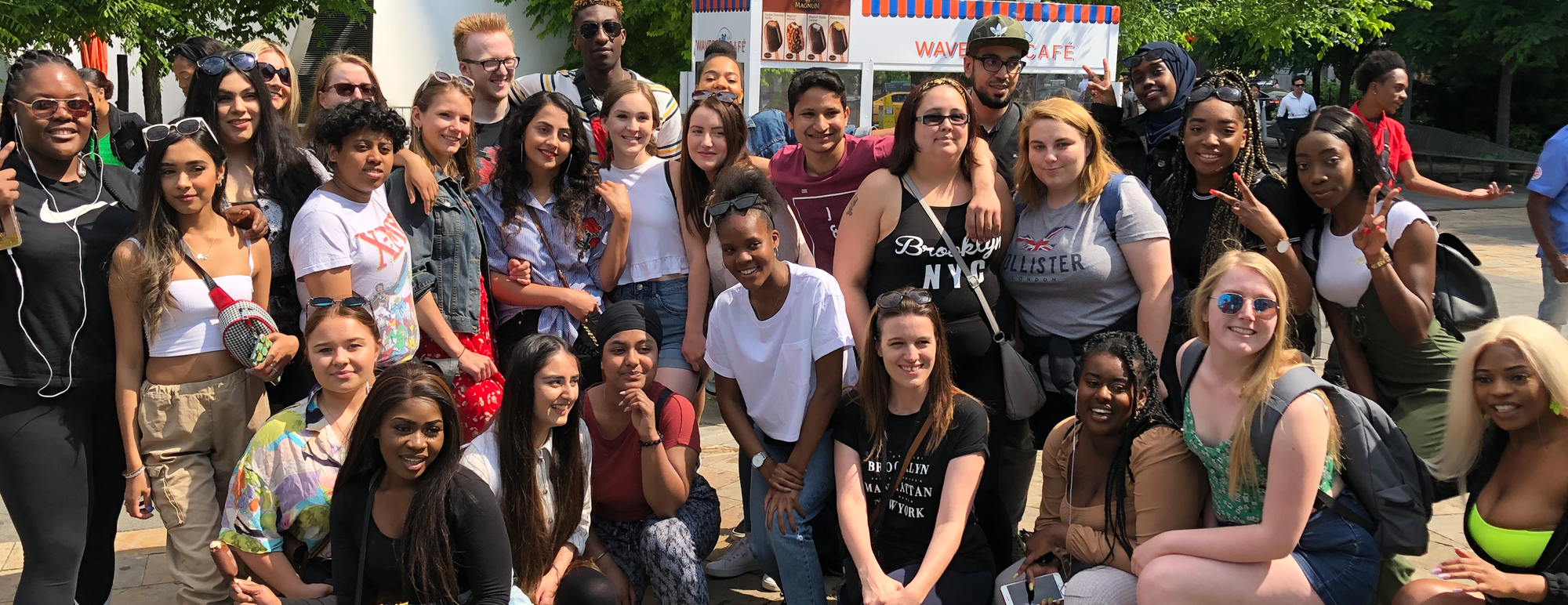
Students felt impacted by the visit due to their heritage – Annette Akinola, a Law, Human Rights and Social Justice student, said: “My parents came from Nigeria to England to search for a different lifestyle. I think it’s symbolic because it shows what people had to do to get a better life.”, while History student Jacob Byrne felt a deeper connection to his family after finding the names of his great-grandparents in an immigration book on the island.
Abigail Holmes, who studies Law, also felt she benefited personally and academically from the visit. She said: “What intrigued me is the policies here and immigration requirements that citizens had to follow in order to live a good life. It makes me realise how privileged I am that I’m not living a life with restrictions and strict rules.” Read more about the visit to Ellis Island HERE.
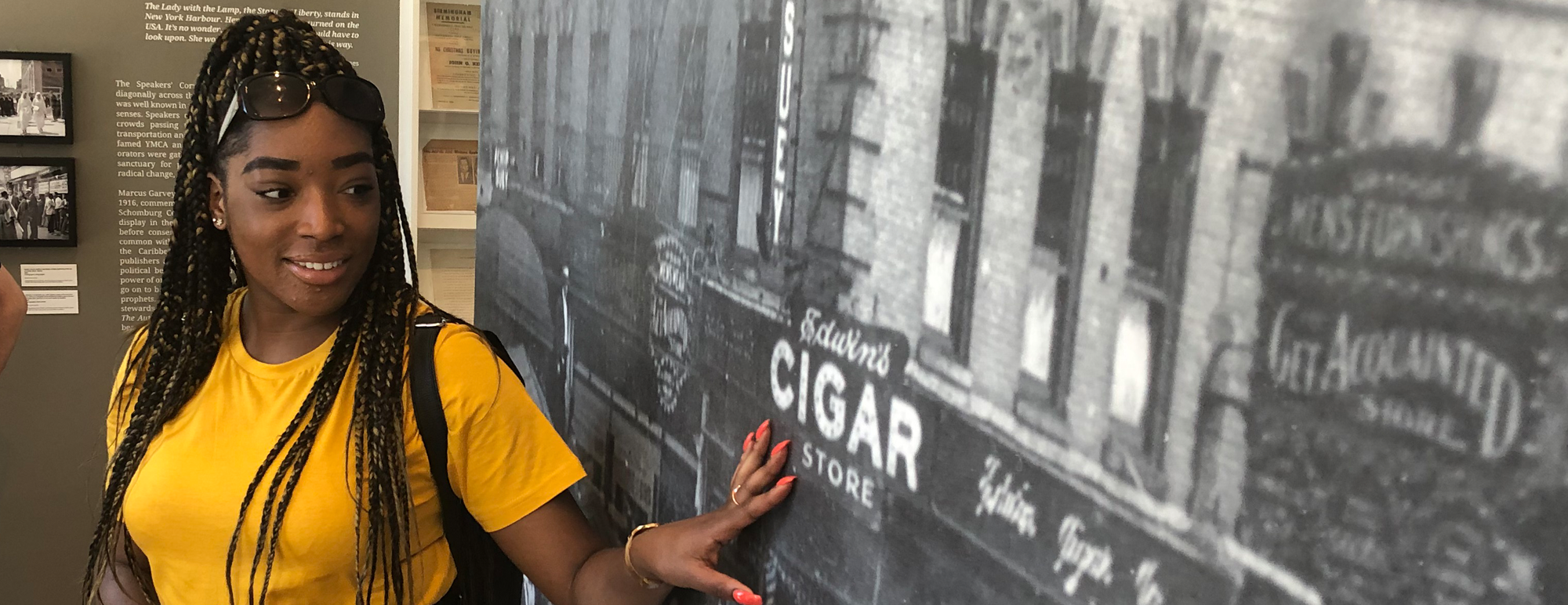
On the second day of the trip, the group explored black and ethnic minority history, identity and community in New York during a tour of the Schomburg Center for Research in Black Culture. As one of the world’s leading cultural institutions devoted to the research, preservation, and exhibition of materials focused on African American experiences, students got the chance to see some of the 11 million-plus items that illuminate the richness of Harlem’s (and New York’s) black history, arts and culture.
Marlo Savin, a History and Politics student, was very moved by the collection. Arturo Schomburg’s story of being told that ‘black history and people did not matter’ as a child in school in Puerto Rico, which motivated him to document black history, resonated strongly with Marlo’s own passion for history. He said: “I’ve spent my whole life from when I was a little kid to find my own heroes and bring up my culture.” Read more about the visit to the center HERE.
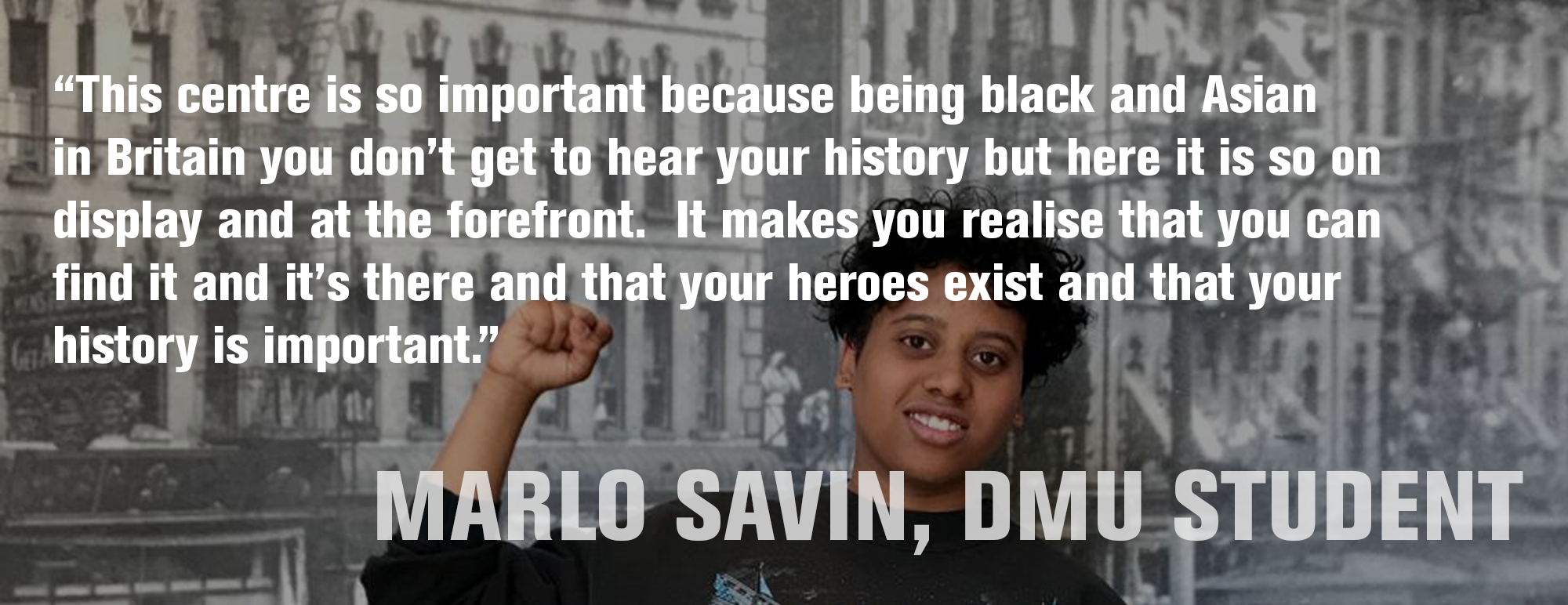
During the trip, the group also got to meet with students from the US at the Colin Powell School for Civic and Global Leadership at the City College of New York to discuss what they have had the chance to learn about black identity, history and heritage. The aim of the visit was to find out how higher education in both the UK and US works with students of colour, and to ask questions and learn from the students in Harlem.
After an introduction, the students split into groups to discuss their experiences with the education system. Topics included whether they have had the opportunity to learn about their histories and how it has empowered them, or if not, what could be the right way forward in making sure education empowers students of colour.
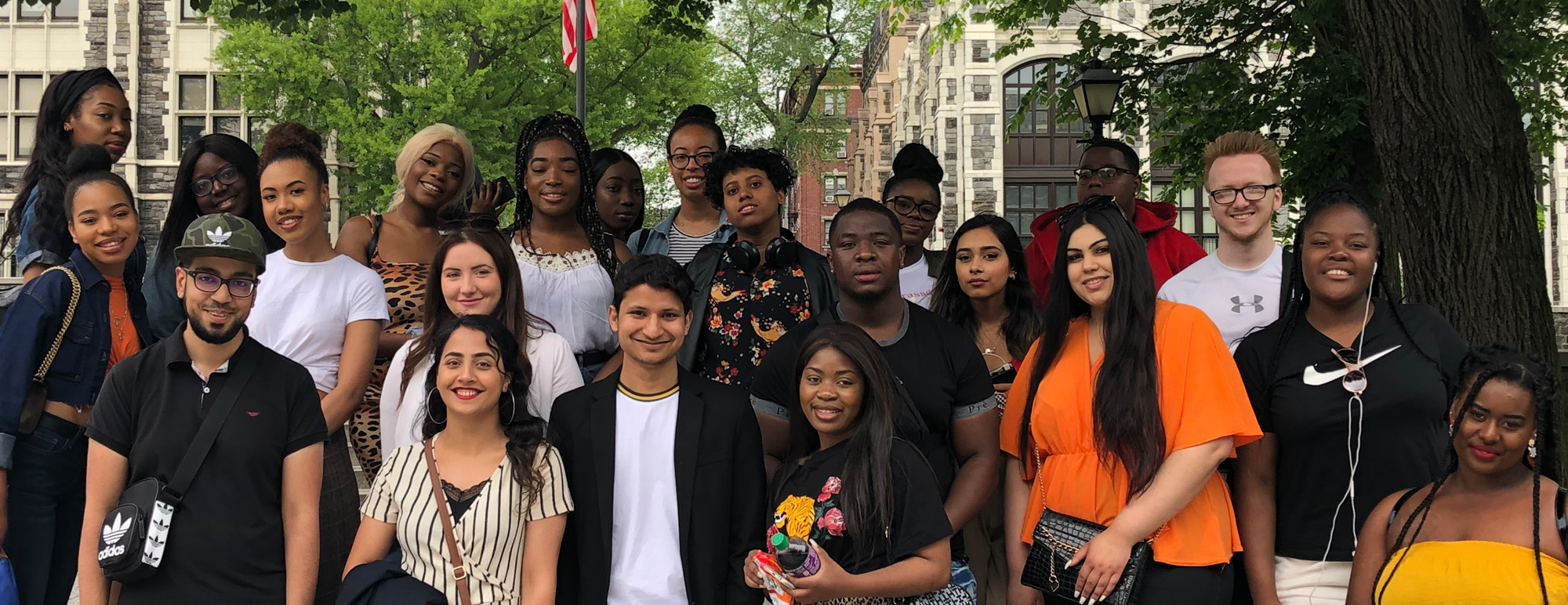
Prabhpreet Kaur, who studies English Literature, said: “We’ve been thinking about the differences that we have in terms of ethnic minority groups in Harlem in New York and in Leicester and DMU. It was really nice to see that we have so many differences but at the same time so many similarities within our groups. The learnings I’ll take back are how everyone’s very different in terms of where they live and where they stay in their different areas, but when they come together in this university, everyone gets together, they know each other and they get on really well. I think that’s really cool.”
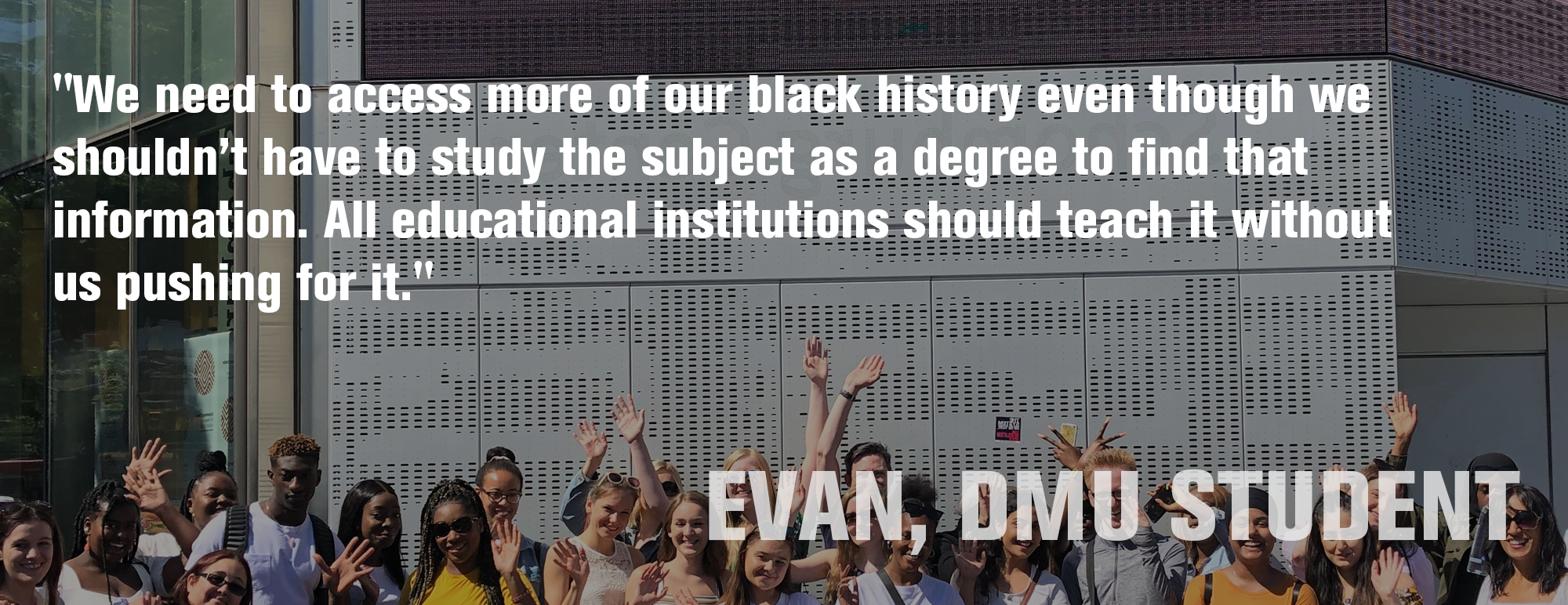
Freedom to Achieve project director, Kaushika Patel, who is also Interim Pro-Vice Chancellor and Dean for the Faculty of Health and Life Sciences, was very pleased with the way the trip has given the students new perspectives and insights about education and culture in the US and how it compares to the UK.
She said: “A key highlight for me was meeting with the equivalent of our undergraduate students and hearing about their educational experiences to see what the similarities and differences were in terms of challenges to black and minority ethnic representation. We’ve asked students to think what they can now do differently and how they can influence the processes of education.” Read more HERE and HERE.
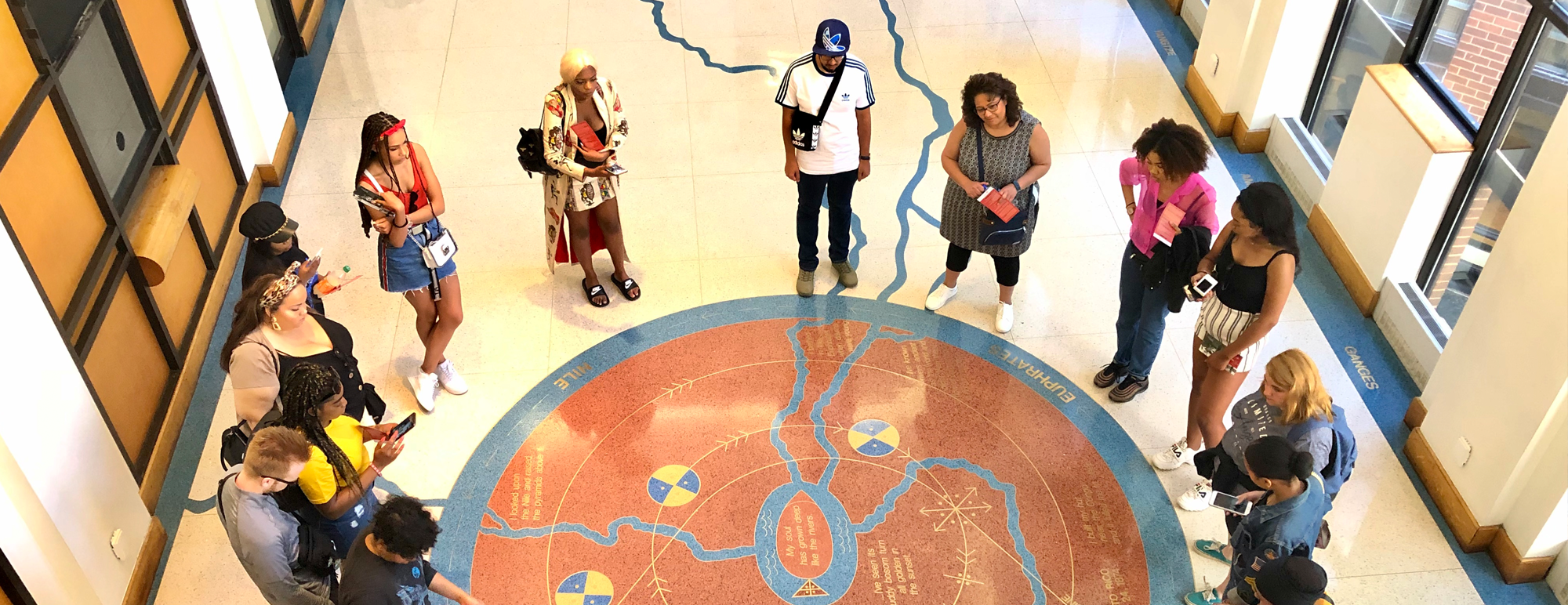
You must be logged in to post a comment.